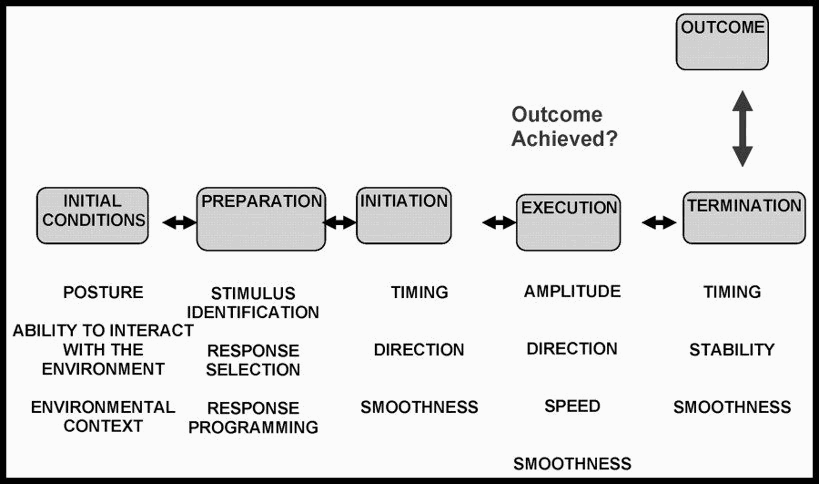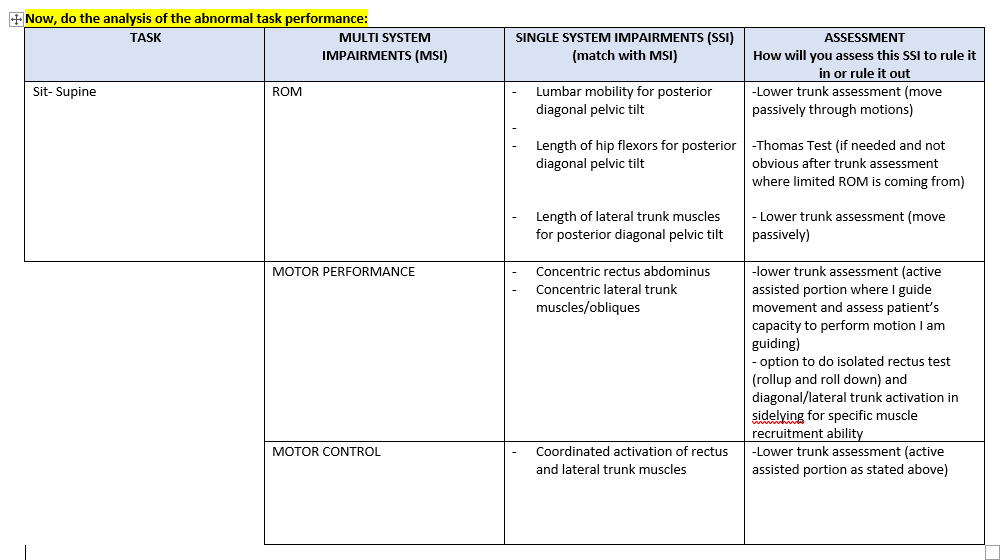Functional Bleepers/ Abnormal Task Analysis

An ASSESSMENT of function requires the therapist to be able to observe the "unsuccessful" task and compare the execution to their knowledge of how it is "typically" performed. The comparison yields a hypothesis about WHY the "unsuccessful" task is unsuccessful. The therapist observes and hypothesizes which impairments (SINGLE SYSTEM.... be specific) may be involved. Once those are identified, the therapist needs to "test" them.
The following videos are examples of "unsuccessful" tasks. Use your Abnormal Task Analysis form to hypothesize the Multi and Single system impairments and identify how you will assess EACH of them.
EXAMPLE:
*DO NOT USE THIS VIDEO FOR YOUR ABNORMAL TASK ANALYSIS
TASK: Sit - supine
First, imagine the task as it is typically performed. Consider the initial conditions, initiation point, ROM, motor control, motor performance, coordination, sequence needed for performance.
Now, watch the video:
Think about each of the phases

Compare what you just observed to what you know to be required at each of the phases and generate a Multi and Single system impairment list. What assessment would you do to rule in/rule out your hypothesis?
ANSWER:
This patient demonstrates appropriate initial conditions with adequate ability to sit unsupported with seemingly appropriate muscle tone. Therefore, there are no issues in Initial Conditions.
The task of sit - supine initiates with a POSTERIOR DIAGONAL (lower trunk) PELVIC TILT. This does NOT occur. There is a problem with Initiation. I hypothesize the following:

NOW, YOUR TURN!
TASK: Sit- Stand
TASK: Supine to Sit
TASK: Sit- Stand 2
SOMETIMES, THE PROBLEM IS IMPAIRMENT IS "THE THERAPIST".
Though this is quite humorous, it happens! Therapists can not take their eyes and hands off a patient while guarding them for a task and must consider the impact of the body parts they are moving of segments above and below. Do not use this video for your abnormal task assessment, but DO store it in your memory of things NOT TO DO.